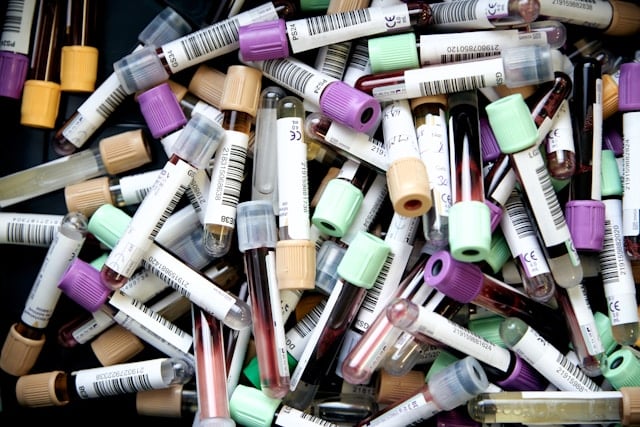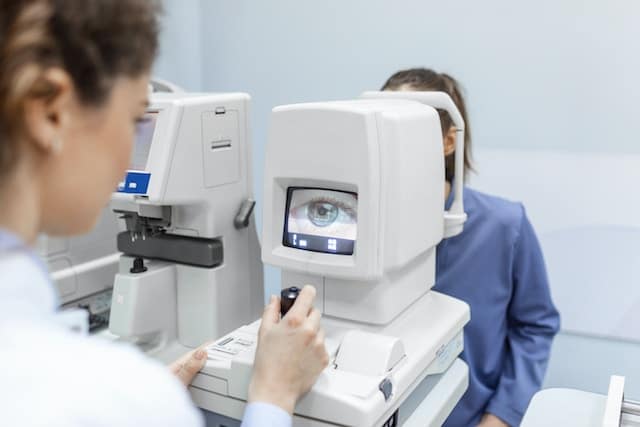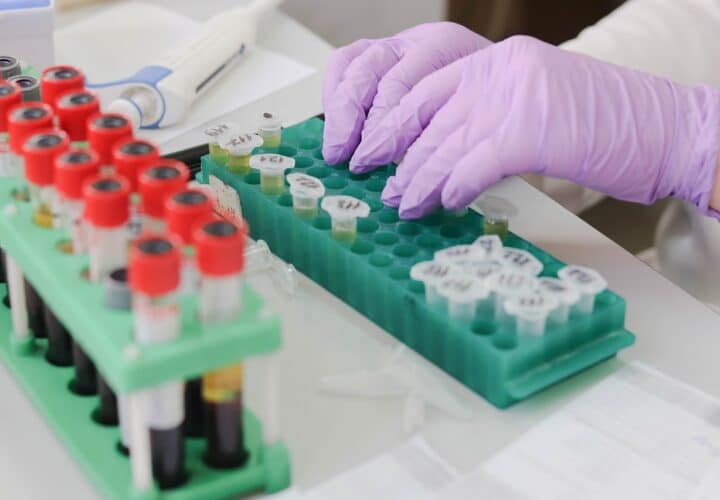The internet is abuzz with claims that biomarker blood tests are the key to predicting dementia 15 years out. Here's what you need to know about what these tests can — and can't — do.
The internet is abuzz with claims that biomarker blood tests are the key to predicting dementia 15 years out. Indeed, up to now, the gold-standard methods for diagnosing Alzheimer’s disease have been lumbar punctures and PET brain scans. And while that’s still the case — Alzheimer’s can’t be definitively diagnosed without these methods — lumbar punctures and brain scans can be pretty darn uncomfortable, not to mention expensive, difficult to access, and until recently, not even covered by Medicare. To make dementia diagnosis easier and more accessible, there is a great deal of research being done into cutting-edge new diagnostics, including blood tests that identify key biomarkers, by providing a proxy of amyloid levels in the brain. People are excited about these new tests because they’re quicker to administer than a PET scan, and may allow for more people to be screened for the disease.
At the moment, none of these tests are covered by the Centers for Medicare & Medicaid Services. But that doesn’t mean consumers aren’t able to get one: Currently, there are a number of tests commercially available in the U.S. — some via a doctor, and some you can order on your own. We discuss each of them here, along with their prices and rates of accuracy. Diagnostics developers — and consumers — are excited about these tests’ predictive power, too. But in order to be effective as an early warning of dementia, there’s still a few kinks to work out. Here are five things patients need to know before getting one of these blood tests.
1. Alzheimer’s blood tests can’t give you a definitive Alzheimer’s diagnosis
These blood tests are not designed to diagnose Alzheimer’s disease. They detect the levels of proteins in the blood that are linked to Alzheimer’s pathology in the brain. The blood test is intended to be one tool in a battery of testing that medical professionals use alongside cognitive testing and a patient’s medical history to make an accurate diagnosis.
So, if you test positive on one of these blood tests, it means that you might have a buildup of beta-amyloid plaques in the brain. If you have symptoms, it can help a doctor figure out if the symptoms are caused by Alzheimer’s or rule it out.
But if you’re asymptomatic, it isn’t clear what the results will mean. Having Alzheimer’s pathology in the brain doesn’t mean you’ll develop Alzheimer’s disease. Upon brain autopsy, scientists have found that some 20 percent of cognitively healthy older adults also have a lot of buildup of these proteins in the brain.
2. Getting one of these blood tests could affect insurance coverage
While there are some laws in place that prevent genetic discrimination — for example, insurance companies cannot deny general coverage to people with Alzheimer’s risk genes like APOE4 — there are no such laws for biomarkers.
Claire Erickson, PhD, who researches medical ethics and health policy at the University of Pennsylvania, told Being Patient that there is very little protection. Tests that are direct-to-consumer have even less protections, she explained, as the information isn’t protected by general health privacy laws.
Erickson said that the accessibility of direct-to-consumer tests is “going to open a can of worms that I don’t think that we’re prepared for,” she said. She also worries that insurance companies in the future might ask people for their Alzheimer’s biomarker status before deciding whether to grant long-term care insurance. In a 2023 research article, Erickson and colleagues highlighted the need for new laws to prevent discrimination.
3. Doctors still need to be part of the process
Most of the blood tests on the market are ordered by a doctor or neurologist. When the results come in, they can guide patients and explain exactly what it means to test positive on a certain test in the context of your symptoms and medical history. This help patients feel less anxious about the results and helps them understand that a positive test does not mean Alzheimer’s disease.
But with Quest Diagnostics, and other companies that may market tests as “direct-to-consumer” tools, experts agree, the idea goes off the rails. The test is too widely available as it is, neurologists and healthcare providers agree — and as for the barriers to entry that are in place, they are not going to be easy to enforce. To ensure the test is only taken by eligible parties, Quest asks buyers to click a check-box prior to checkout — as one would see in standard “terms of service” agreements — saying they meet the criteria.
There’s no safety net if you order an Alzheimer’s test yourself. The advantage of going through the doctor is that they are available to answer any questions or uncertainties that arise.
4. So far, the tests aren’t standardized — and results will be hard to understand
There are many well-established blood-based biomarkers of cardiovascular diseases and diabetes. If blood glucose, HbA1c, or certain types of cholesterol are above a standardized threshold then it means you are at risk of developing one of these diseases.
But when it comes to biomarkers for Alzheimer’s disease, things aren’t as simple: There are no standards.
Even with the same laboratory measurements of plasma biomarkers, people who take tests developed by different companies will interpret their results differently. If someone has a ratio of Aβ42/40 equivalent to 0.135, they would be considered high risk by Quest’s test but not at risk according to the ATN test developed by Labcorp.
“It is not uncommon for diagnostic tests to have differing calibrations especially when a new biomarker is being established,” CEO of LucentAD, Masoud Toloue told Being Patient. “In the meantime, healthcare providers should evaluate the robustness of the validation methods used to establish the cut offs of a particular test and make sure the validation includes populations that match the patients they are treating.”
In addition, diagnostic tests do not need to go through a separate round of testing to confirm that they are effective and accurate.
5. After testing, there’s no clear protocol for what to do next
Even if the results are reliable and correct, the test can only tell a person if they are likely to get Alzheimer’s in the future. Consider that 25 percent of healthy older individuals develop the telltale amyloid plaques in the brain but never develop any symptoms. If these individuals had their blood taken when they were in their 20s, 30s, or 40s, they too might have increased levels of Alzheimer’s biomarkers.
Some people who test positive will go on to develop Alzheimer’s, others will not. There is nothing actionable that these individuals can do with this information to reduce the risk of developing Alzheimer’s based on this information.
There are six tests currently on the market. Want to know more?
There’s more you might want to know, even after all these disclaimers: What blood tests are currently on the market? Where do you get an Alzheimer’s blood test? How do they work, how accurate are they exactly, and how much do they cost? For our definitive list of all the blood tests currently on the market, click here.





If you have been taking Quetiapine for 20 years,for insomnia do you have an increased risk for developing dementia ?
Lots of links between Alzheimer’s risk and healthy sleep — and some research shows taking certain insomnia medications may even LOWER your dementia risk. Have a look at this live talk: https://www.beingpatient.com/dr-roger-wong-insomnia-sleeping-pills-and-the-brain/